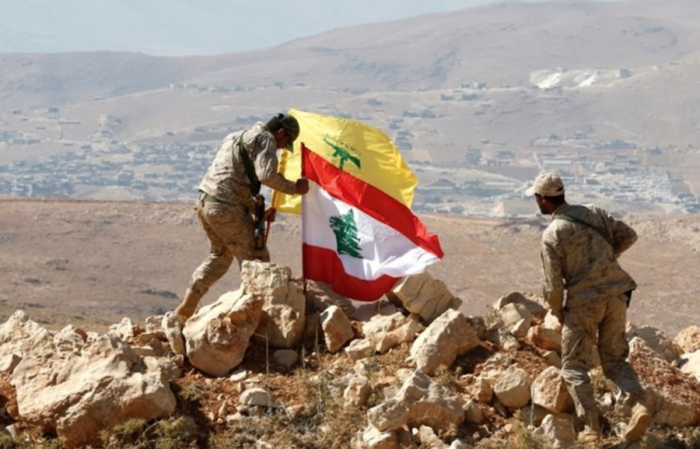BEIRUT: Lebanon shouldn’t see international assistance as unconditional, a Western diplomatic source told The Daily Star Tuesday, while urging additional government action to implement the policy of dissociation and check Hezbollah’s relation to the state. “Support is not unconditional, donors do look at Lebanon within the political context and therefore if there is no progress on the issue of Hezbollah and dissociation, then that could affect donor’s decisions,” the Western source warned ahead of an important meeting of the International Support Group for Lebanon in Paris Friday, which U.S. Secretary of State Rex Tillerson and French President Emmanuel Macron are set to attend.
Pointing to recent public statements by U.S. President Donald Trump and British Prime Minister Theresa May, the source explained that Western countries are pursuing a policy of curbing Hezbollah’s activity in the region and rolling back the influence of Iran. In this vein, the source said that statements by Lebanese officials seen as supportive of the Iranian-backed group undermined the ability of Western states to assist state institutions.
“Countries understand the difficult situation in Lebanon and the special case of Lebanon, but the key thing is keeping the separation clear between Hezbollah and the state,” the source said.
The source pointed out that Western states may be taking a different approach to tackling Hezbollah but this doesn’t mean there is a major divergence of opinion regarding the end goal. Rather, there is “a range of views on a spectrum,” but there would still be a unified public stance from the ISG Friday.
Responding to questions over Hezbollah as a regional issue, beyond the Lebanese government’s ability to manage alone, the source said there was still action that could be taken.
“We do recognize it’s a regional issue as well. However, that doesn’t mean that there isn’t a domestic angle as well,” the source said. “When you look at the relationship that the international community has with the Lebanese state, that is one of the things that is affected by Hezbollah. What the Lebanese state needs to think about is its relationship and also that question of political cover [for Hezbollah].”
The source added that this had been the sentiment even before Prime Minister Saad Hariri announced his resignation from Riyadh on Nov. 4. “This is not all directly related to the resignation, some of these concerns had already been developing,” the source said, adding that this was a growing issue looking to the next five to 10 years.
While the Western diplomatic source said that the concerns raised regarding Hezbollah weren’t going to result in a major change in assistance, in the short term it could affect the “tone” of support, including the language of the statement after Friday’s ISG meeting.
A source close to Hariri told The Daily Star that the government is expecting the ISG to come out strongly in support of Lebanon Friday.
However, the Western diplomat said the wording of the final statement would depend on the specific details underpinning Tuesday’s Cabinet statement that reaffirmed the policy of dissociation. If the international community gets the sense that there are concrete things going on behind the scenes, the source said, it would play positively Friday.
Also discussing Friday’s meet, a French diplomat in Paris told The Daily Star that it would be “linked to gathering the international community in order to reiterate engagement to support [the] stability, security and integrity of Lebanon.” The French source went on to say that the ISG would encourage all Lebanese political actors to ensure the effective functioning of state institutions will be correctly implemented.
The French source was also quick to dismiss the notion that the meeting was at all linked to the possible Paris IV or Rome II donor conferences for infrastructure assistance and the Lebanese Army. “Again, it’s completely separate from the conferences slated to be held in 2018 – the ones agreed on between Hariri and [President Michel] Aoun during their official visits to France.”
The last Paris donor conference, Paris III, was held in January 2007, nearly six months after the devastating 34-day Hezbollah-Israel war.
It saw the international community pledged some $7.6 billion in assistance for Lebanon to rebuild battered infrastructure and communities. The similarly slated Rome II will focus on military assistance to the Lebanese Army.
The French diplomat added that the ISG is ready to support discussions and encourage all Lebanese political actors to be sure that they all agree on the good functioning of state institutions.
This week’s meeting in Paris, which will be co-chaired by French Foreign Minister Jean Yves-Le Drian and the United Nations, is “clearly linked to the current political situation following Hariri’s resignation in Riyadh and all events that followed,” the French source said.
Asked if any mention would be made about the refugee crisis in Lebanon, the French source reaffirmed that “it’s not linked to any economic crisis or refugee crisis.”
The French diplomat said that an invitation was also extended to Arab nations, while Paris is waiting for confirmation.
Despite a cloud surrounding his position back home in the U.S., Tillerson has confirmed his attendance, the source said.
Separately, another diplomatic source in Paris told The Daily Star that the timing of the ISG meeting was a way of giving international approval to the agreement taking place between parties in Beirut.
The source also mentioned that the meeting is meant to ensure Lebanon is not destabilized, “as the risk is very high.” The source added: “The conference is an opportunity with all the major powers around the table to tackle the explosive situation between Iran and Saudi Arabia.”
Read original at The Daily Star
